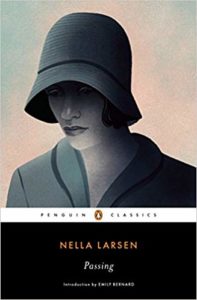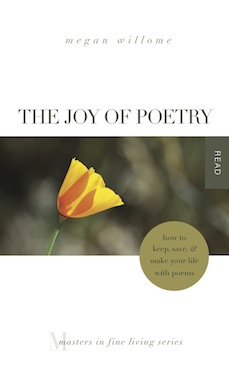Clare began to talk, steering carefully away from anything that might lead towards race or other thorny subjects. It was the most brilliant exhibition of conversational weightlifting that Irene had ever seen.”
If ever there was a thorny subject that could benefit from conversational weightlifting, it’s race, whether we’re discussing the singing of the national anthem before an NFL game or who gets to do the Wakanda salute. When I was a child, I was taught not to see differences. Now differences are emphasized. The world has changed.
In Reader, Come Home Maryanne Wolf says that as today’s youth grow up and confront a world grownups like me cannot imagine, they need “ever more sophisticated forms of cognition and imagination.” She adds that they will need “a range of very different brain circuits.”
“Can an individual reader consciously acquire various circuits?” Wolf asks.
Yes, we can. And one of the best ways to acquire those circuits is to read books by authors with backgrounds different than our own. Not because we should or because it’s good for us but because there are excellent books by authors who fell outside the academic canon, like Nella Larsen. Her slim novella, Passing, published 90 years ago, upends whatever scripts you may have regarding race.
The title comes from the practice among some light-skinned blacks who could “pass” among whites, when doing so in America was a crime. The two central characters, Irene and Clare, can both pass. Clare left behind family, culture, and society and married a racist white man. Irene married a prominent dark-skinned doctor in New York City, but passes when it’s convenient or advantageous. After the two old friends reconnect in a whites-only Chicago restaurant, Clare starts to pursue her heritage, which means pursuing Irene. Trouble ensues.
This is fiction. There is a plot, which builds slowly and lethally. As in the best novels, there is foreshadowing everywhere, but it’s so muted you think it’s only description. Then you reread a single sentence about the ash of a cigarette and your eyes widen at Larsen’s genius.
The story is full of color, and I don’t just mean skin color. There are “pink women, golden women.” It’s as if Larsen thought to herself, Do you really want to talk about color? Well, then, I’ll give you some color to talk about.
For Irene, beige: “‘Not another damned thing!’ Irene declared aloud as she drew a fragile stocking over a pale beige-colored foot.”
For blonde-haired, black-eyed Clare, any bright color, especially blue: “Entering, Irene found herself in a sitting-room, large and high, at whose windows hung startling blue draperies which triumphantly dragged attention from the gloomy chocolate-covered furniture. And Clare was wearing a thin floating dress of the same shade of blue.”
Larsen was a member of the Harlem Renaissance. Passing is one of two novels she wrote, along with a few short stories. After a divorce she returned to her first profession, nursing. Her depression put an end to her writing. When she passed away in 1964,The New York Times passed her over. In 2018 they printed a much-delayed obituary for her.
I first heard about Passing on a podcast, then read it, then listened to another podcast about it, then read it again. It made me aware how much I attempt to categorize people by how they look, like the time I was handing out school supplies with a charity and tried to guess which parents spoke only Spanish and failed. To use Wolf’s language, my life experience has not always provided me with the necessary brain circuits to live in 2019. (I don’t think I would’ve done so well in the New York City of 1929 either.)
Clare and Irene share tea more than once in the book. They share cake. But even conversational calisthenics can’t change fate.
The trouble with Clare was not only that she wanted to have her cake and eat it too but that she wanted to nibble at the cakes of other folk as well.”
December’s Pages
Finished
Poetry
Darwin’s Daughter, Faith Shearin
Adult
A Child’s Christmas in Wales, Dylan Thomas (HT Glynn Young, here at Tweetspeak)
Passing, Nella Larsen
Early Readers and Picture Books
Gingerbread Friends; Home for Christmas; The Mitten; The Night Before Christmas; The Wild Christmas Reindeer, Jan Brett
Nine Days to Christmas: A Story of Mexico, Marie Hall Ets & Aurora Labastida (Caldecott-winner)
The Upside Down Boy / El Nino de Cabeza, Juan Felipe Herrera (Join us for next week’s Children’s Book Club, January 11!)
Middle Grade and YA
American Street, Ibi Zoboi (HT Code Switch’s 2018 Book Guide)
Made Progress
The Odyssey, Homer, transl. Emily Wilson Listening along with Overdue’s subpodcast: Stop! Homer Time)
Your turn
1. What fiction have you read by an author of a different racial category that connected circuits for you or even laid new ones?
2. Did you make some time for deep reading this month? What stories stirred your soul?
3. Share your December pages. Sliced, started, and abandoned are all fair game.
Photo by Joe Diaz, Creative Commons, via Flickr. Post by Megan Willome, author of The Joy of Poetry.
Browse more Reader, Come Home
“Megan Willome’s The Joy of Poetry is not a long book, but it took me longer to read than I expected, because I kept stopping to savor poems and passages, to make note of books mentioned, and to compare Willome’s journey into poetry to my own. The book is many things. An unpretentious, funny, and poignant memoir. A defense of poetry, a response to literature that has touched her life, and a manual on how to write poetry. It’s also the story of a daughter who loses her mother to cancer. The author links these things into a narrative much like that of a novel. I loved this book. As soon as I finished, I began reading it again.”
—David Lee Garrison, author of Playing Bach in the D. C. Metro
- Perspective: The Two, The Only: Calvin and Hobbes - December 16, 2022
- Children’s Book Club: A Very Haunted Christmas - December 9, 2022
- By Heart: ‘The night is darkening round me’ by Emily Brontë - December 2, 2022



Glynn says
Last month, I read Colson Whitehead’s “The Underground Railroad.” It plays with history and it plays with your head, in very powerful ways. And the new National Book Award for Poetry winner – “Indecency” by St. Louis poet Justin Phillip Reed – is another powerful work.
December Reading
Mystery
The Kingdom of the Blind by Louise Penny
Wild Fire by Ann Cleeves
Campion at Christmas by Margery Allingham
The Dead Sister by Jonathan Dunsky
Non-fiction
Dickens and Christmas by Lucinda Hawksley
Fiction
Home on the Range by Ruth Logan Herne
Jake Annie by J.M. Barrie and Arthur Conan Doyle (play)
Pieces on Earth by Cathy Bryant
Five Christmas Plays by David Winter
1066: What Fates Impose by G.K. Holloway
Along Came Jones by Linda Windsor
The Underground Railroad by Colson Whitehead
Two Stories by Virginia Woolf and Mark Haddon
Poetry
A Child’s Christmas in Wales by Dylan Thomas
Indecency by Justin Phillip Reed
Let There Be Light: Collected Poems by Joseph Spring
Fingerprints of Love and War by Edward Holmes
Megan Willome says
Glynn, I have a friend who is planning to lend me “The Underground Railroad” when he finishes it. So glad to know you recommend it too.
Sandra Heska King says
I honestly don’t think I read anything in December short of slicing a few pages in several books. In fact, I have some overdue library books that I hardly touched. I did check out Thanhha Lai’s Inside Out & Back Again cuz I bought it for Lillee for Christmas. I figured I should read the whole thing rather than slices. 🙂 It’s a novel in verse from the viewpoint of a 10-year-old girl whose family escaped Vietnam before Saigon fell.
Megan Willome says
That sounds intense, Sandy.
December can be a hard time for reading. A lot of the things I read were shorter than usual.
Maureen says
I read Michelle Obama’s ‘Becoming’ and Lin Manuel-Miranda’s ‘Gmorning, GNight! Little Pep Talks for Me & You’ (a Christmas gift from friends); also Tony Hoagland’s ‘Recent Changes in the Vernacular: Poems’ (excellent, as are all Hoagland collections).
I have almost finished Natasha Trethewey’s ‘Monument’ and Lindsey Hilsum’s wonderful ‘In Extremis; The Life and Death of the War Correspondent Marie Colvin’. Will also be finishing ‘Hue’ this month.
I won a copy of ‘Milkman’ and will begin that soon. None of the characters are named in the novel, which is a prize winner.
Megan Willome says
Maureen, I’ve had several people recommend Michelle Obama’s book.
And I don’t have Lin-Manuel’s yet, but I love his Gmorning/Gnight tweets, that I know inspired the book. He is one of the reasons I stay on Twitter.
Laura Brown says
1. Hmm. Most recently, probably “Things Fall Apart” by Chinua Achebe.
3. December reading that I remember:
“Thank Your Lucky Stars: Short Stories” by Sherrie Flick
“The Best Small Fictions 2017,” series editor Tara Masih, guest editor Amy Hempel
“Gratefulness: The Habit of a Grace-Filled Life” by Susan Muto
Reread parts of “The Gospel of Christmas: Reflections for Advent” by Patty Kirk
Part of “Otherwise” by Jane Kenyon
Finished some books started in November, including “The Empathy Exams” by Leslie Jamison and “True You” by Michelle DeRusha
If audiobooks sort of count: I started listening to the audiobook of our next book club selection, “Braiding Sweetgrass” by Robin Wall Kimmerer.
At some point last fall I read but failed to mention one of my favorite books of the year: “The Sound of a Wild Snail Eating” by Elisabeth Tova Bailey.
Megan Willome says
Audiobooks definitely count! I’ve started the Audible-produced reading of “Jane Eyre” with Thandie Newton.
Read “Things Fall Apart” just a couple years ago. Speaking of Lin-Manuel Miranda (see above), he said it was his favorite book to teach when he was subbing.
L.L. Barkat says
Passing sounds like an amazing book. When I resume reading (I’m stopping for a period of up to a year, depending on a few things I haven’t pinpointed yet), I’ll take a look. (I’ve put it on my “Want to Read” list in the back of my Reading Notebook. 🙂 )
This whole issue of reading circuits, raised by Wolf, intrigues me. Such complexity! Learning to read is no small feat. (I like her circus analogy, complete with illustrations, of how the circuits form and interact).
The one area I found myself departing on was the alarm about impact. For sure, it’s currently quite hard on anyone who doesn’t learn to read and doesn’t know how to read deeply. As many of us here at Tweetspeak now know, states determine the number of prison beds based on reading scores. Low scores = high demand for prison beds. They plan accordingly.
And yet. The world has been moving towards digital literacy, which means audio-visual literacy has begun its reign. At some point, those who will be left behind are those who have not developed these brain circuits. Already, the older generation, lacking such circuits to the same extent as the younger generation, is fooled by, for instance, fake images and video. My own girls are not fooled. They see and hear nuances in audio-visuals that I don’t, because they are steeped in the media. They can spot a dub or a Photoshop alteration a mile away. “That’s so obvious,” they say to me. Obvious to the trained eye and ear, yes.
Likewise, they think deeply in their own media, having conversations that are over my head, as they make philosophical and aesthetic observations I don’t have the language for. So, maybe the alarm needs to be set in the opposite direction: it may be the older generation who needs new circuits; at the very least the older generation should begin to respect the depth of what the younger generation is actually doing with these new media.
I know Wolf sort of acknowledges this, but, really, she still seems biased towards a print-literate culture, suggesting that democracy itself is at stake. Maybe. Maybe not. 🙂
Megan Willome says
L.L., I think you raise a great point about how the reading circuits–meaning reading in the broadest sense of the word–cut both ways. Like you, I have seen a greater sense of literacy in my children because they consume elements of pop culture that I don’t (video games, YouTube stars, a bunch of stuff I’ve never heard of).
I do try to read and listen to people who dip their toes into more pools, just to have a sense of what else is out there that I’m missing.
But, oh, the pleasure of a tightly written short novel like “Passing”! For me, there’s nothing else like it.
Prasanta says
I’m interested in the Underground Railroad as well; it’s on the list.
Both Passing and the ideas presented by Wolf sound fascinating to me.
1. Good question. In fiction, I think for now, I’d say Cry, the Beloved Country by Alan Paton. But I want to add more to this list. I do have a nonfiction title I could add that profoundly impacted me this past year (Beyond Colorblind by Sarah Shin).
2. Stirring my soul right now: Devotions by Mary Oliver (begun in December)
3. December reading
Fiction
Sing, Unburied, Sing by Jesmyn Ward
The Ocean at the End of the Lane by Neil Gaiman
Nonfiction
Made to Stick: Why Some Ideas Survive and Others Die by Chip and Dan Heath
Mystics and Misfits by Christiana Peterson
True You by Michelle DeRusha (begun-not yet finished)
Poetry
Oceanic by Aimee Nezhukumatathil
Megan Willome says
Hi, Prasanta!
“Cry the Beloved Country” and “The Ocean at the End of the Lane” are two of my favorite novels ever.
I have not read any Jesmyn Ward, but I’m aware of her, mainly because of her first book, “Salvage the Bones.” She seems to have a significant, new voice.
On Aimee Nezhukumatahil, is her poem “Mosquitoes” in that collection. It’s the only one I know by her, but I read it years ago and it still stuck.
(http://aimeenez.net/wp-content/uploads/2015/01/Mosquitoes.pdf)